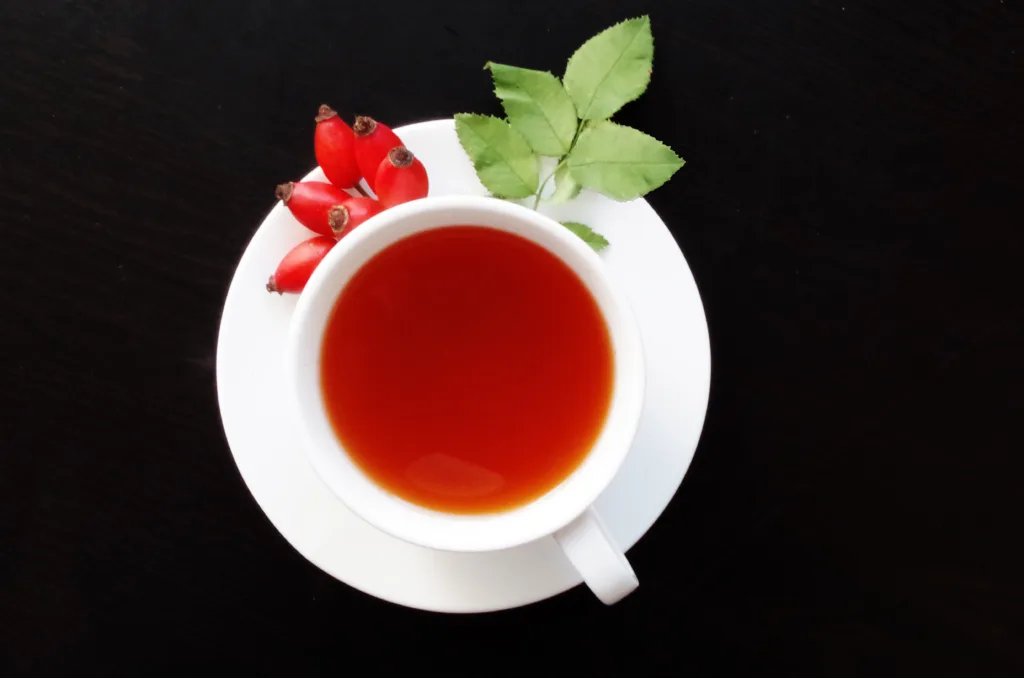Is Mint Tea Low Fodmap?
Are you looking for a delicious and healthy beverage to add to your diet? Mint tea is a popular choice for many, but it can be difficult to know if it’s suitable for those who follow a low FODMAP diet. In this article, we’ll look at the low FODMAP properties of mint tea, as well as some other important considerations for those with digestive issues.
We’ll explore the health benefits of drinking mint tea and some tips on how to make the perfect cup. We’ll also discuss potential health risks and look at some alternatives if mint tea isn’t suitable. By the end of this article, you’ll have everything you need to decide if mint tea is a good choice for you!
A Low FODMAP Diet is a dietary approach that helps reduce symptoms of irritable bowel syndrome (IBS) by reducing the amount of Fermentable Oligo-, Di-, Mono-saccharides and Polyols (FODMAPs) in the diet. It is often recommended by healthcare professionals to help manage IBS symptoms such as abdominal pain, bloating, gas, and changes in bowel habits.
FODMAPs
FODMAPs stands for Fermentable Oligosaccharides, Disaccharides, Monosaccharides and Polyols. These are short-chain carbohydrates that are found naturally in many foods like wheat, onions and garlic. FODMAPs can be difficult to digest, so they can be a trigger for digestive issues such as bloating, cramping and diarrhea.
People with IBS (Irritable Bowel Syndrome) and other digestive issues may find reducing their intake of FODMAPs helpful in managing their symptoms. A low FODMAP diet involves avoiding high-FODMAP foods for a period of time, then gradually reintroducing them to identify which foods trigger symptoms. This is best done under the guidance of a registered dietitian or doctor.
High-FODMAP foods include certain fruits (like apples and pears), vegetables (like broccoli and cauliflower), grains (like wheat and rye), dairy (like milk and yogurt) as well as certain sweeteners (like honey and agave). Low-FODMAP foods include certain fruits (like oranges and bananas), vegetables (like carrots and potatoes), grains (like rice or quinoa) as well as dairy-free milks such as almond or coconut milk.
Reducing your intake of FODMAPs can help to reduce digestive discomfort, but it is important to make sure you are still getting the nutrition your body needs from other sources. Making dietary changes can be challenging but talking to a registered dietitian or doctor can help you create an individualized plan that works for you.
Benefits of Mint Tea for IBS Sufferers
Mint tea is a popular herbal remedy for people with irritable bowel syndrome (IBS). It has been used for centuries to treat digestive issues, and it is a natural source of many health benefits. Studies have shown that drinking mint tea can help reduce symptoms of IBS, including abdominal pain, bloating, and constipation. The calming effects of mint tea may also help to reduce stress levels, which can exacerbate symptoms of IBS.
Click here to preview your posts with PRO themes ››
Mint tea contains several active compounds that can help to soothe the digestive system. The menthol in mint helps to stimulate bile production in the liver and improve digestion. Menthol also relaxes the smooth muscles in the digestive tract, which helps to ease cramping and discomfort caused by IBS. Mint also contains rosmarinic acid, which has anti-inflammatory properties that can reduce inflammation in the intestines caused by IBS.
Mint tea has antispasmodic properties, which means it can help to reduce intestinal spasms and muscle contractions that are often associated with IBS. This can result in fewer episodes of abdominal pain and cramping. Mint tea is also known for its ability to reduce gas and bloating in the intestines. This can be beneficial for people with IBS who experience excessive gas or bloating as part of their symptoms.
Mint tea is a natural source of antioxidants that can help support overall good health and boost immunity. Antioxidants have been found to protect against cell damage caused by free radicals, which may be beneficial for people with IBS who may be more susceptible to damage from oxidative stress due to their condition. Mint tea also contains essential oils such as menthol and limonene that have antiviral properties that can help fight off infections such as colds or flu viruses.
In conclusion, drinking mint tea may provide relief from symptoms of irritable bowel syndrome (IBS) such as abdominal pain, bloating, constipation, and muscle contractions. The active compounds in mint are known to stimulate bile production in the liver, relax the smooth muscles in the digestive tract, reduce inflammation, provide antioxidant protection against cell damage caused by free radicals, and fight off viral infections such as colds or flu viruses. Mint tea is an easy way to incorporate natural remedies into your diet and provide relief from IBS-related symptoms.

How to Prepare Mint Tea for Low FODMAP Diet
Mint tea is a refreshing beverage that can be enjoyed on a low FODMAP diet. This herbal tea is made from fresh mint leaves, which are naturally low in FODMAPs and provide a wonderful flavor profile. Preparing mint tea on a low FODMAP diet is easy and can be done in minutes. Here are the steps to make this delicious drink:
1. Gather all the necessary ingredients: fresh mint leaves, hot water, sugar or honey (optional), and a teapot.
Click here to preview your posts with PRO themes ››
2. Place the fresh mint leaves in the teapot. Pour hot water over the leaves, making sure they are completely submerged.
3. Allow the tea to steep for 3-5 minutes, depending on how strong you prefer your tea.
4. Strain the tea into cups or mugs and sweeten with sugar or honey if desired.
5. Enjoy your delicious mint tea!
By following these simple steps, you can make a tasty cup of mint tea that is low in FODMAPs and perfect for your low FODMAP diet!
Alternatives to Mint Tea on Low FODMAP Diet
Having to follow the Low FODMAP diet can leave you feeling a bit limited when it comes to food and beverage choices. But it doesn’t mean you can’t enjoy a warm and comforting cup of tea. There are plenty of alternatives to mint tea that are low in FODMAPs and flavorful enough that you won’t miss the mint.
Chamomile tea is a great option for those following the Low FODMAP diet as it is low in FODMAPs, soothing and calming. It has an earthy flavor that is quite unique, making it a great alternative to mint tea.
Green tea is another great choice for those following the Low FODMAP diet. Green tea is not only low in FODMAPs, but also contains a variety of antioxidants that can help keep your body healthy. It has a slightly grassy flavor, which makes it an excellent alternative to mint tea.
Lemon balm tea is also low in FODMAPs, making it an ideal choice for those on the Low FODMAP diet. It has a light citrus flavor with hints of mint, making it perfect for those who are looking for something similar to mint tea but without the added FODMAPs.
Ginger tea is yet another Low FODMAP friendly option that can be enjoyed as an alternative to mint tea. Ginger has a spicy flavor that can help soothe an upset stomach and provide some relief from bloating and other digestive issues associated with the Low FODMAP diet.
Finally, rooibos tea is another great option for those following the Low FODMAP diet as it is naturally caffeine-free and low in FODMAPs. Rooibos has a sweet flavor with woody undertones, making it perfect for those who want something different than traditional mint tea while still getting all of the benefits of herbal teas.
Mint Tea and Low FODMAP Meals
Mint tea is a refreshing beverage that can be enjoyed anytime of the day. It is known for its digestive benefits, as it helps to soothe an upset stomach and relieve bloating. That makes it a great choice for those who follow the Low FODMAP diet, as it can help to reduce uncomfortable symptoms caused by eating FODMAPs.
Click here to preview your posts with PRO themes ››
The Low FODMAP diet is a dietary approach that eliminates high-FODMAP foods in order to reduce digestive symptoms often associated with irritable bowel syndrome (IBS). FODMAPs are carbohydrates found in certain foods that are poorly absorbed by the gut and can cause digestive issues. By avoiding these foods, many individuals with IBS have found relief from their symptoms.
Adding mint tea to your Low FODMAP meals can help to make them more enjoyable, as well as provide additional digestive benefits. Here are some delicious recipes that combine both mint tea and low FODMAP ingredients:
• Mint Tea-Marinated Grilled Chicken: This recipe marinates chicken breasts in mint tea, garlic-infused olive oil, and lemon juice before grilling them on the barbecue or stovetop until cooked through. Serve with roasted potatoes or steamed vegetables for a complete meal.
• Mint Tea Overnight Oats: Start your day right with this healthy breakfast option! Combine rolled oats, chia seeds, non-dairy milk, honey, and a green tea bag (or loose leaf mint tea) in a jar and let it sit overnight in the refrigerator. In the morning, top with your favorite fruits or nuts for an energizing start to your day.
• Mint Tea Roasted Vegetables: This dish is perfect for those following a plant-based low FODMAP diet! Simply toss your favorite vegetables (such as cauliflower or Brussels sprouts) with garlic-infused olive oil, salt and pepper, a green tea bag (or loose leaf mint tea), and roast in the oven until tender and lightly golden brown. Serve warm with quinoa or rice for a hearty meal.
These recipes are just some of the ways you can incorporate mint tea into delicious low FODMAP meals. Whether you’re trying to reduce uncomfortable IBS symptoms or just want to enjoy a refreshing beverage while eating healthfully, adding mint tea to your diet is sure to be beneficial!

Conclusion
Mint tea is generally considered to be a low FODMAP beverage, though it is best to consult with a healthcare professional before consuming it. For those on the low FODMAP diet, mint tea can be enjoyed in moderation as part of a balanced diet. The amount of mint used in a cup of tea will determine how much FODMAPs are present, so it is important to be aware of the quantity when making your tea. It is also possible to buy teas that are specifically low FODMAP or containing no FODMAPs at all, so these can be an option for those looking for a more convenient way to enjoy mint tea.
Mint has long been used for its digestive benefits, and drinking mint tea can be one way to help reduce symptoms such as bloating and abdominal pain associated with IBS. While not suitable for everyone, those who are able to consume it should do so in moderation as part of a balanced diet that includes other low FODMAP foods and beverages.

